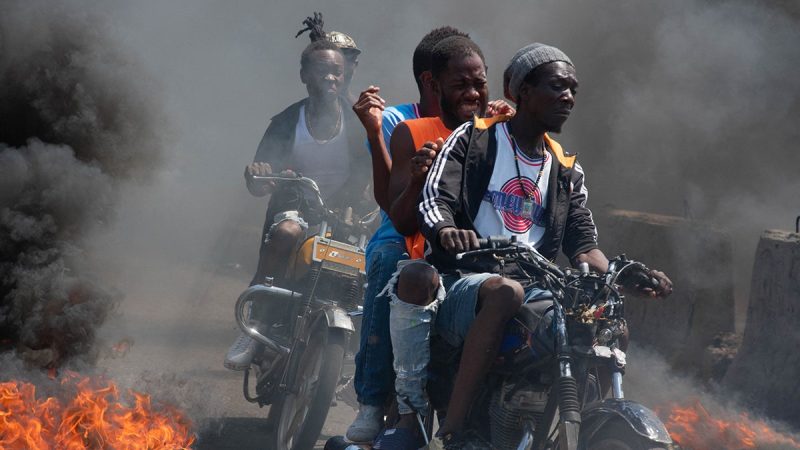The current situation in Haiti represents a significant concern for U.S. national security. Amid the political chaos and economic instability in Haiti, gangs are increasingly asserting their power, seeking to exert control over vast sections of the country. This unstable environment produces far-reaching implications that could impact security, as well as economic interests, not only for Haiti but also for the United States.
Haiti’s tumultuous political landscape, marred by corruption and mishandling of public funds, has allowed organized criminal gangs to flourish. These groups control many urban neighborhoods, possess substantive firepower, and employ coercion and violence to maintain their power. The groups present a dual problem: they contribute to internal instability within Haiti while also increasingly involving in cross-borders drug trafficking, hence posing a direct threat to U.S national security.
The role of these criminal organizations in drug trafficking accelerates this threat to the U.S. They’ve increasingly utilized Haiti as a transit point for narcotics bound for the United States, facilitating a stream of illegal drugs into the U.S market. This trade not only feeds the domestic opioid crisis, but funds gang activities, facilitating their acquisition of weapons and increasing their power and control.
Besides, the violence and instability caused by these battling gangs have significant humanitarian implications. Dire economic conditions, exacerbated by gang warfare and lack of governmental control, have fuelled a surge in Haitian migration toward the U.S southern border. These exacerbate existing immigration issues and potentially strain national resources as U.S border patrols, immigration services, and legal systems are tested.
The battle for power is not only between the criminal elements themselves, but also with the struggling Haitian government. The rule of law in Haiti has been significantly eroded. Failure to maintain law and order permits these gangs to operate with impunity, and in some cases, officials or law enforcement officers may be implicated in gang activities, further complicating the situation.
Haiti’s proximity to the U.S mainland also makes it a strategic geographical concern. Strengthening these gangs may be further exploited by foreign actors, potentially including state and non-state entities, who may use them to destabilify the region. This exploitation may include the use of Haitian territory for illicit trafficking routes, which can be used to smuggle not only drugs, but also weapons or possibly even human beings.
Though assistance and intervention from the United States pose challenges amid Haiti’s deep-rooted issues, ignoring the problem is not an option. Proactive engagement is necessary to mitigate threats and shield the U.S. from potential security risks. U.S. efforts could include financial, legal and policing support to help curtail gang violence, restore law and order, and build effective institutions.
However, these endeavours should also focus on transformative change. This means addressing the root causes like economic instability, social inequality, political corruption and lack of education which have plagued Haiti, allowing the gangs to rise to power. Holistic strategies such as these could bring about lasting changes, decimating the breeding grounds for gangs and, in turn, significantly reducing the potential threat to U.S.
The increasingly violent and complex nature of Haiti’s gang issue illustrates that the country’s problems are not contained within its borders; instead, they have the potential to reverberate across the Caribbean and into the U.S. Indeed, the battle of Haitian gangs for territorial control presents far-reaching implications that must be thoroughly and urgently addressed in order to safeguard U.S national security.
